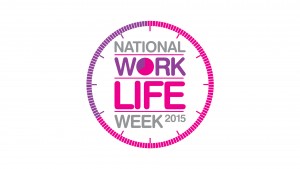Shelagh Young reflects on fair work conditions in the food industry.
On Saturday I took part in a panel discussion at the Take One Action film festival alongside renowned food writer and activist Joanna Blythman and the STUC’s Dave Moxam. The discussion followed the screening of Food Chains, a moving account of a campaign by US farmworkers to secure a penny a pound more from the supermarkets for the tomatoes they harvest. This tiny additional payment could double the gross pay of the impoverished workers. It was painful to watch a small child being roused at 4am in a rundown, cramped shared room for a buggy ride to the babysitters because the parents must travel miles then sit for hours, unpaid, on a stationary bus waiting for the right weather conditions for picking to start. Given that I am currently promoting National Worklife Week here in Scotland this glimpse of life at the sharp end of the supermarket supply chain was a good reminder that maximising individual wellbeing is a goal which requires collec tive action.
tive action.
In response to the usual discussion point “What can we do to change this?” we panel members had various answers – ranging from join Nourish Scotland (of course) to join and support Trades Unions and switch your custom to independent food businesses. This last suggestion was challenged by a young woman in the audience. She works hard for an independent café but does not receive a Living Wage – independents, she reminded us, are not a simple solution to worker poverty. There was not enough time to pursue this point in depth but it needs to be. To paraphrase the well-known description of power, we know that all poverty corrodes quality of life and absolute poverty corrodes quality of life absolutely. Pay that is too low to live on is a 21st century scourge that must be eradicated. But we also know that employers that are not generating vast, unequally shared profits are not to blame for the low pay crisis. For example, astronomical increases in land and property prices – which push up domestic and commercial rents alike – are just one part of an economy that allows increasing wealth to be generated by those that already own assets at the expense of those that have only their labour to sell. Independent businesses cannot escape the general economic conditions and pay whatever they like to their workers in a price conscious, ethics light market.
Does this mean our championing of independent food businesses is as unhelpful to the average food industry worker as the fake “Living wage” being introduced by the Tories next year? My view, and that of my fellow panellists was “no”. The reason for this was that there is a great deal of evidence that what matters to workers, so long as they can survive on their pay, is the conditions in which they work. Being respected, enjoying a degree of autonomy, being allowed to feel human and valued – all these things matter as much as money. As the young woman in the audience reminded us – she loves her job.
So, while the campaign for fair wages must continue, attention to the quality of the non-financial aspects of working life must be equally prominent in our struggle for systemic change in the food industry. Fair work means more than fair pay and I applaud any food businesses that truly strives to pay fairly and to increase the overall wellbeing of their workforce at every level in the food chain.
Shelagh Young is a director of Nourish and currently Chair of The Phone Co-op the UK’s only customer owned phone, mobile and broadband provider.
_____________________________________________________________________________________________
Nourish Scotland is a membership organisation and the more members, the stronger our voice. You can read more about becoming a Nourish member here.